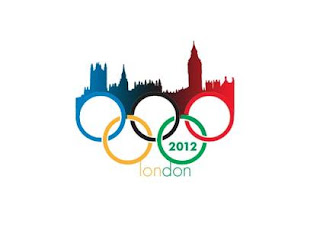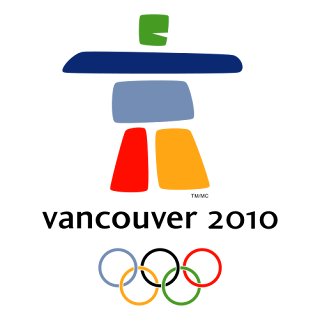 Where have I been? I promised myself when I started this blog that I would never have one of those "sorry I haven't been posting" posts, so I say by way of explanation, not excuse, that I have been busy watching the Olympics. (Also, it's tax season, so financial services professional and faithful CHP reader Bill Saas has had less free time and therefore less reason to harrass me about not blogging).
Where have I been? I promised myself when I started this blog that I would never have one of those "sorry I haven't been posting" posts, so I say by way of explanation, not excuse, that I have been busy watching the Olympics. (Also, it's tax season, so financial services professional and faithful CHP reader Bill Saas has had less free time and therefore less reason to harrass me about not blogging). As always, the Winter Olympics produced (or NBC produced, depending upon how you look at it), some great stories. For me, the best ones were the following:
As always, the Winter Olympics produced (or NBC produced, depending upon how you look at it), some great stories. For me, the best ones were the following: In Turin, Alpine Skiing great Bode Miller was the Sports Illustrated golden boy. He was a World Cup monster, and was predicted to bring home a big haul of treasure for the United States. And he knew it. He played the obnoxious rockstar athlete to the hilt, and, to my personal satisfaction, completely crapped out in Turin, failing to medal at all.
In Turin, Alpine Skiing great Bode Miller was the Sports Illustrated golden boy. He was a World Cup monster, and was predicted to bring home a big haul of treasure for the United States. And he knew it. He played the obnoxious rockstar athlete to the hilt, and, to my personal satisfaction, completely crapped out in Turin, failing to medal at all.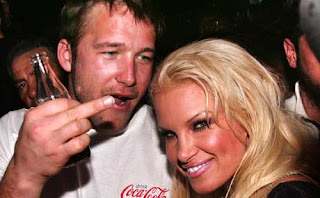 Vancouver saw a new Bode Miller. He was humble. A family man. Someone who had clearly grown up. And karma rewarded him, with medals across the board, a Gold in Super Combined, a Silver in Super G and a Bronze in downhill.
Vancouver saw a new Bode Miller. He was humble. A family man. Someone who had clearly grown up. And karma rewarded him, with medals across the board, a Gold in Super Combined, a Silver in Super G and a Bronze in downhill.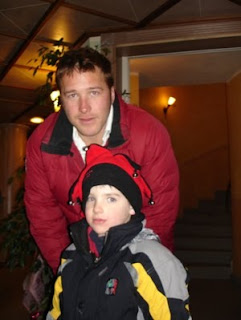
Apolo Ohno:

It's hard not to like short track speed skater Apolo Ohno. He is clearly a guy who worked hard to turn his life around and was awarded with a whole slew of medals. In this, his last Olympics, everything seemed to fall his way, literally, as in races where he looked as if he would fail to medal, last second slips or crashes by other racers paved the way for Ohno to reach the podium. Even in his final indvidual race, the 500m, Ohno made it to the final by dodging racers who obligingly crashed out to clear him a path. He even crossed the line second in that final for a potential silver, but was disqualified in a controversial ruling. He did not let this dampen his spirits, however, as he put it together one last time to help America medal in the team relay event.
The Agony of Defeat
Sven Kramer
Probably the most tragic story of these games was that of Sven Kramer. 23 year old Kramer is a long track speed skater and a virtual rock star in the Netherlands, a country as crazy for speed skating as Canada is for hockey. He is far and away the best long track speed skater in the world and took the 5000 meters gold easily, to the apoplectic joy of Dutch fans. This would be followed by tragedy, however, as Kramer went for gold in the 10,000 meter, a race for which he has no peer. Although crossing the finish line in record time a full six seconds ahead, an eternity in racing terms, Kramer was disqualified, as his coach directed him into the WRONG LANE eight laps before the end of the race. Through no fault of his own, Kramer ended up with nothing in the race he was born to win and Kramer's feeling of disappointment and betrayal was palpable.
Women's Giant Slalom (Vonn/Mancuso)
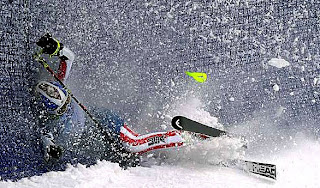
Lindsey Vonn was to Vancouver as Bode Miller was to Turin, without the attitude. She was the great Amercan hope for skiing in these Olympics. She delivered, with the first American woman's gold in the Downhill event, and a bronze medal in another discipline to go with it. A great result, although the American public was probably set up to expect more. Julia Mancuso was the "other" American skier, constantly in Vonn's shadow. With all eyes on Vonn, Mancuso collected silver medals in the Downhill and Combined events.
Nowhere was the idea of Mancuso in Vonn's shadow more ironically and tragically played out than in the Giant Slalom event. Mancuso had been the upset winner in this event in 2006, and a win here would really cement her status as an Olympic champion in her own right. In a bizarre twist of fate, Mancuso was scheduled to ski immediately following Vonn.
A little more than halfway through her run, Vonn crashed, breaking her finger and finding herself stuck on the course. For some inexplicable reason, race officials sent Mancuso on her run while Vonn was still racing, so Mancuso found herself speeding down the mountain with Vonn still crashed on the course. While Vonn was off to the side and would not have made contact with Mancuso unless she also crashed, officials decided at the last minute to flag Mancuso down and cancel her run. Distraught, she trudged back up the hill to start over, but, no doubt distracted by the strange situation, finished 1.3 seconds behind in the first run, and failed to medal.

As I write, the games are not quite over, and there are still some stories to be written; the U.S. has a chance to win for both men and women in the relatively new Speed Skating Team Pursuit, an event in which both teams were heavy underdogs, and most notably, the U.S. Canada Men's hockey final is yet to be played. And of course, there are many stories I did not even touch on. If this all sounds interesting and you're sorry you missed it, I don't blame you. Never fear though, thanks to the wisdom of the IOC in staggering Olympics, there should be a bunch more great stories to enjoy in two years at the Summer Games in London.
